Kazuo Mori
Nacimiento : 1911-01-15, Matsuyama, Japan
Muerte : 1989-06-29
Historia
Kazuo Mori, also known as Issei Mori, got his start as a jidai-geki director in silent films of the 1930s. In postwar years he became a leading director at Daiei, working regularly with the studio's familiar stars like Shintaro Katsu and Raizo Ichikawa.
In the 1960s and '70s, Mori established himself alongside Kenji Misumi as one of the most dependable names in chambara franchise series, directing some of the best installments of Zatoichi, Kyoshiro Nemuri and Shinobi No Mono. Mori's work is marked by clear, intelligent storytelling and innovative camera techniques.
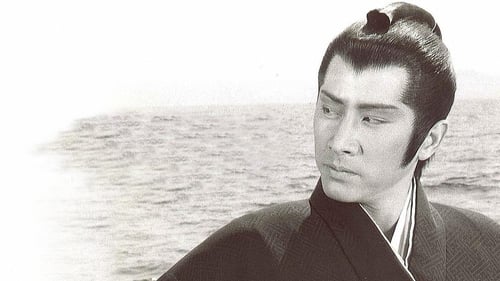
Director
The secret map of the treasure of Kenzan was stolen out of the house of a former soldier in Awa. A fight over the treasure that the map shows happens among the Rozyu, a Ronin, a thief, and the Hyodo family. Is the treasure there? Who will get it? Masakazu Tamura plays the role of a ronin from Edo, Hayato Arakida, from the Mumyo Tenshin school dojo and a swordmaster working for Lord Awa. The film is based on the original work of Kyotaro Nishimura. A period show with a fierce fight on a raft going down a river and romance.
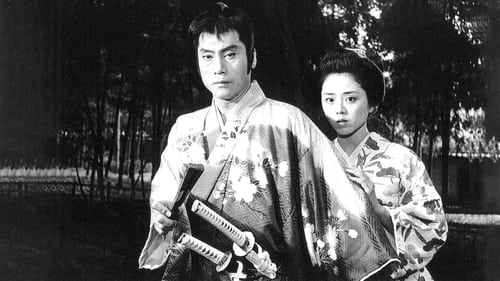
Director
Saotome Mondonosuke is Hatamoto (a high-class warrior who is allowed to see the Shogun in person) who has a crescent-moon-shaped scar on his forehead with flashy clothes and a handsome face, and is proficient in all the military arts and called Bored Hatamoto. Mikijiro Hira acts as such a hero in history. Mondonosuke is secretly ordered to look into the suspicious movement in Nagoya castle by the Ometsuke, and he found out about the misconduct and sole it. This is a period movie about the hero!
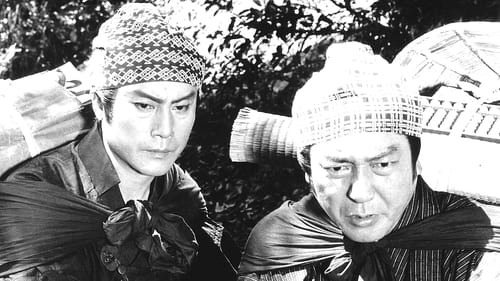
Director
By all indications, an anti-government conspiracy is brewing in the Satsuma Domen. Already seven oniwaban spies sent by the shogunate have infiltrated Satsuma in order to scout everything on the spot. However, they had all disappeared, and it was unclear whether they were alive or dead. Kenzaburo Kamiya and Iori Matsumura successfully infiltrate as the eighth and ninth spies and witness law-breaking exercises using a cannon. However, soon Satsuma men found them and drove them to the cliff...
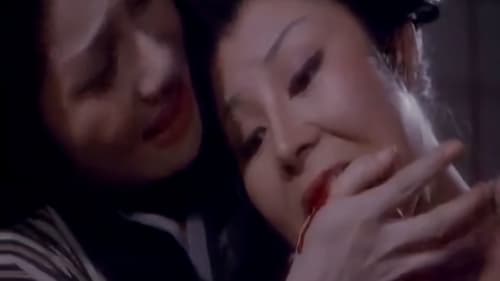
Tres historias que versan sobre los crueles y sádicos castigos a los que varias mujeres son sometidas por diferentes e insólitas circunstancias. El adulterio, la deshonra de un padre y el arte erótico, serán los temas principales de cada segmento.
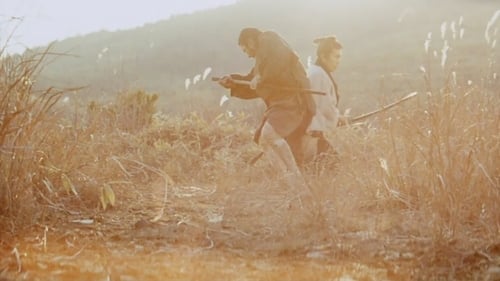
Director
Vigésimo tercera de las veintiséis películas basadas en el personaje de Zatoichi interpretado por Shintarô Katsu. Zatoichi se encuentra en su camino a una mujer embarazada que acaba de ser atacada por un bandido. Las cosas se complican y Zatoichi debe hacer de comadrona en ese momento, pero la mujer muere durante el parto, y Zatoichi se encarga de llevar el bebé a su familia. Una vez encuentra a la familia del bebé, descubre que la mujer embarazada llevaba 20 ryus que debía pagar al jefe de una banda para que su cuñada no fuera obligada a ingresar en un burdel.

Director
Takeshi Ijuin leaves for Chicago to be a cameraman, and a few years later returns to Japan. But he only learned the technique of homicide in Chicago. When he visits the graveyard with his father to pray at his mother's tomb, his father is shot by someone. Now he thirsts for revenge.
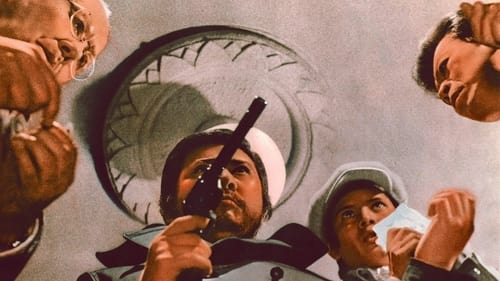
Director
An action-comedy about three men who try to bilk money out of gambling dens.

Director
The Shinobi-no-Mono series was so successful that Daiei Studios dipped into the well one more time, making the best 60′s B&W ninja movie ever seen in the otherwise color-dominated year of 1970. Issei Mori directs Hiroki Matsukata as the reluctant leader of a small band of spies charged with kidnapping a noblewoman from a heavily ninja-proofed castle. The finality of the air slowly began to fill like smoke, and in all that had become dark the loyalty of the Ninja who dared to go shone like light as they entered a world shrouded in mystery. Things do not go as planned in what is possibly the darkest and most fatalistic of the already noir-ish 60′s fare. Both the decade and it’s distinctive style of shinobi cinema went out on a high note with Mission Iron Castle.
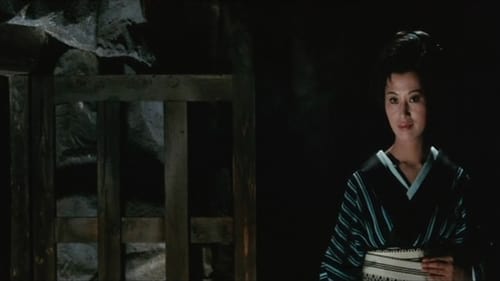
Director
Inspector General Kanjuro Sano conspires with the future shogun twin brother. They replace Ieyoshi Tokugawa with his twin, but it becomes a problem when suspicion arises and Nemuri Kyoshiro gets involved.

Director
About 1786 the doings of a demented lord results in many masterless samurai, including Iyemon (Kei Sato) who is used to luxury and cannot adjust to the hand-to-mouth conditions & piecework of umbrella making. Having hired ruffians to make him look like a superior swordsman, he arranges for himself the opportunity of a profitable marriage. He hires the half-blind masseur Takuetsu (Sawamura Sounosuke) to seduce or rape his wife (Kyoko Mikage), so that she can be divorced or killed for adultery. But the masseur takes pity & informs Oiwa of her husband's horrid plot. Assisted by the merchant's daughter he intends to marry, Iyemon disfigures his wife attempting to poison her so he can marry higher. There's a lovingly gruesome sequence as she combs blad patches into her hair, kneeling deformed at her mirror, weeping with bitterness. She eventually cuts her own throat, swearing revenge.

Director

Director
Japanese crime film

Director
Japanese crime film

Director
Well before “Shogun” as warring clans were fighting for power throughout Japan, a Portuguese vessel ran aground off Tanegashima. Lord Tokitaka helped Captain Pinto repair his ship. The grateful captain offered the lord a gift--a matchlock musket—the first firearm ever seen in Japan. But like a great stone hurled into placid waters, this simple gift will start a revolution. Tokitaka tasks Kinbei, his greatest swordsmith, to copy this musket and build guns for Japan. While Kinbei struggles to forge Japan’s first musket, a great love blooms between Captain Pinto and Kinbei’s daughter Wakasa. But for Kinbei, to let Wakasa marry Pinto and go to Portugal is unthinkable. And as Kinbei creates Japan’s first matchlock factory, Lord Oda Nobunaga will seize upon firearms as the key to sweep all other clans before him, tearing a blood-soaked path of destruction through Japan.

Director
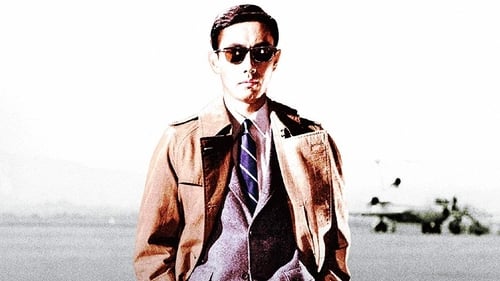
Director
Raizô Ichikawa reprises his role as the restaurant-cook-turned-contract-killer in this sequel to Kazuo Mori's stylish 1967 thriller A Certain Killer.

Director

Director
A former soldier, reduced to working at a restaurant post-war, becomes a contract killer for the yakuza gangs he's in contact with.

Director
Un malvado guerrero invade un pueblo durante una fiesta. El guerrero quema las casas y asesina sin piedad a civiles indefensos. También roba todo lo que puede y sus hombres destruyen la estatua de su dios, que está en medio del pueblo y lanzan sus restos al lago. Todo parece perdido, pero de repente una extraña fuerza surge del lago, matando a los soldados...

Director
A sequel to the popular "The School of Spies", this film continues the adventures of one of the graduates who is assigned to crack a powerful spy ring working out of Kobe. Various people are suspected but, finally, it seems that an Army captain and his geisha friend might lead them to the ring.

Director

Director
[Period covered: 1616] Kirigakure Saizo (Mist Saizo) returns for the final time as he sets out to assassinate Tokugawa Ieyasu in order to avenge the death of Lord Sanada Yukimura. But first he must contend with Ieyasu’s own ninja group led by the powerful Fuma Daijuro, who has a score to settle with the men of Iga that dates back 280 years to the war between the Genji and the Heike at the Battle of Dan-no-Ura. Tremendous fighting and great plot twists highlight this exceptional look into the lives of the mysterious ninja of Japan.
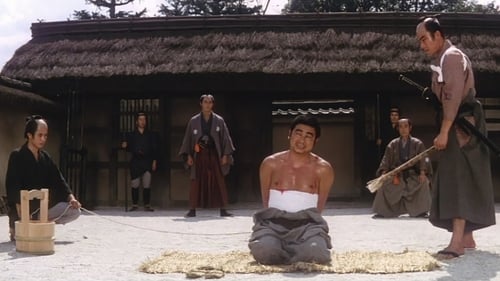
Director
Blind swordsman Zatoichi, jailed briefly, is implored by another prisoner to aid him in proving his innocence of a crime for which he is sentenced to death. Zatoichi is reluctant to get involved, because he knows how often such involvement has led to trouble in the past. But events conspire to thrust him repeatedly into involvement, and gradually he comes to believe in the man's innocence and determines to free him.
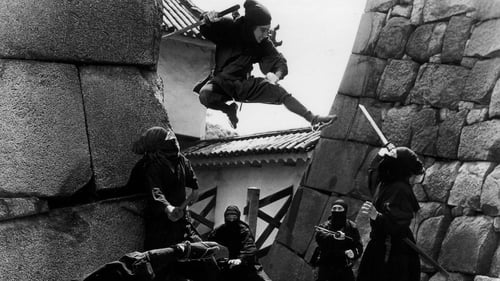
Director
[Period covered: 1637-1651] This is one of the most complicated plots of any of the Shinobi no Mono films! This film tells the story of Saizo’s son, Kirigakure Saisuke, who after seeing his father die at the Battle Of Shimabara, grows up to be an expert ninja. Before he dies, “Mist” Saizo tells his children Saisuke, and Yuri that they are not really brother and sister. She, in fact, is the daughter of the late lord Sanada Yukimura, and must be saved from the shogun’s forces. In the chess match of spy versus spy, can Saisuke defeat the shogun’s chief strategist, Matsudaira Izunokami at his own game? Showing many exciting ninja tactics, it is not to be missed.

Director
Abare inu is a 1965 action-comedy film directed by Kazuo Mori. It is the fourth film in the series.

Director

Director

Director

Director

Director
[Period covered: 1595-1600] Third film in the famous shinobi no mono series. We last saw ninja Ishikawa Goemon (Raizo Ichikawa), as he was about to be boiled alive. But a good ninja is both hard to find, and even harder to kill. With the help of the enigmatic Hattori Hanzo, Goemon lives to skulk another day, and sets his sights on bringing down the warlord who tried to turn him into soup – Toyotomi Hideyoshi. And as always, in the background, the suble hand of Tokugawa Ieyasu is pulling strings as he plots to rule all of Japan!

Director

Director
An entertaining historical drama featuring popular comedians from the Kansai region of the time, such as Makoto Fujita, Minoru Shiraki, and Gannosuke Ashiya. Raizo Ichikawa as the famous yakuza boss Jirocho.

Director

Director
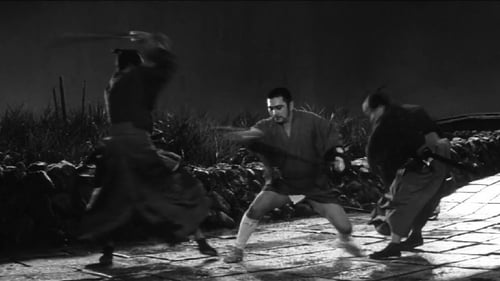
Director
Segunda de las veintiséis películas basadas en el personaje de Zatoichi interpretado por Shintarô Katsu. En esta segunda entrega, Zatoichi se encuentra a un hombre, el cual carece de un brazo por culpa de un ataque de Zatoichi, celoso de él ante la posibilidad de perder a su amada...

Director

Director
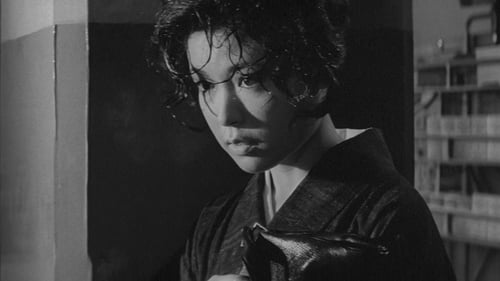
Ayako Takigawa tiene que defender su inocencia ante un tribunal, acusada de la muerte de su marido en extrañas circunstancias. Los indicios sugieren un oscuro triángulo amoroso.

Director
Hikaru Genji, the haunted romantic hero of Lady Murasaki Shikibu’s “Genji Monogatari” (Tale of Genji) comes to life in this new tale of his further romantic adventures. Young Genji, the emperor’s illegitimate son cuts a swath through the women of the imperial court, while still mourning the spirit of his late mother who died while he was still a child. Driven to an obsession with the emperor’s new concubine, Lady Fujitsubo, whose resemblance to his late mother originally caught the eye of the emperor, young Genji embarks upon a reckless affair with her that could cost him his life.

Director

Director
Features a haunted well with yet another blind masseur's vengeful ghost.

Director
Podríamos quejarnos de que Kenji Misumi repite desarrollo en la segunda y la tercera parte de “Satan´s Sword”. Sin embargo es una cuestión solo apreciable desde el punto de vista de aquel que lee la sinopsis. En lo que respecta a la película, cada una de ellas se ve respaldada por elementos secundarios que la diferencian completamente de las otras.
Precisamente es el hecho de repetición argumental centrada en la persecución de Hyoma buscando venganza, lo que hace que se debilite ese deseo. Él mismo comienza a tomárselo como una costumbre, llegando a olvidar incluso por qué lo hace. Su lucha interna solo se decidirá al llegar el final del film.

Director
During Japan's Warring States period three young Tokugawa vassals head their separate ways after Takeda Shingen's forces overran their castle. When they next meet they have all joined opposing sides.

Director

Set in 1926 when Japanese tradition was much stronger, this drama looks at the inner workings of a small family, especially the relationship between a sister and brother.

Director
This is the story of a blind masseur who tricks people, steals, and kills; he is the anti-Zatoichi

Director
The exciting story of Jirocho and his yakuza gang that controlled the area of the Tokaido during the latter days of the samurai era. Awesome fighting from Katsu Shintaro as One-Eyed Ishimatsu highlights this great tale taken from Japanese history!

Director
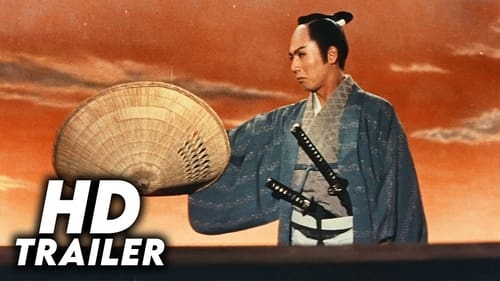
Director
Two amiable samurai wind up on opposite sides of the vendetta between Lord Asano's retainers and the family of Lord Kira that led to the famous revenge of the 47 Ronin.
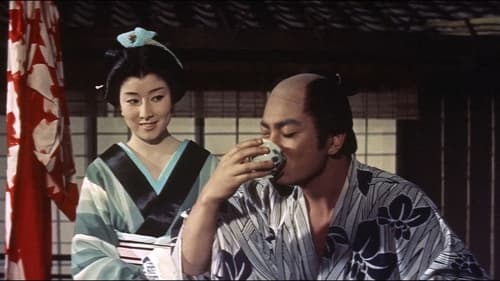
Director
Legendary yakuza Shimizu Jirocho and his 28 henchmen travel the unruly path from a 'Fire Festival' in Akiba to a decisive battle by the Fujigawa.

Director

Director

Director
A beautiful girl who seeks revenge, disguises herself by dressing up in men's clothes, geisha, etc. A young swordsman helps her uncover the plot and take revenge.

Director

Director
Suzunosuke faces perhaps his wildest foes. This evil gang is lead by a one-eyed birdman and other demonic creatures.

Director
In 1905, Japan was seriously threatened in the Russo-Japanese War. Japan determined a decisive attack on Russia to end the war. A reconnaissance troop was organized to penetrate into the supreme headquarter of Russia in Tieling Mountain of China to find out the enemy's situation...

Director

Director

Director

Director
A story of aristocratic star-crossed love.

Director

Director

Director
A young woman decides to leave school in order to help her sister.

Director
Japanese film.

Director
Based on the comic by Machiko Hasegawa
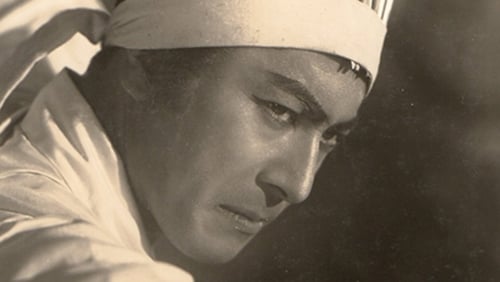
Director
The famous showdown at Kagiya corner has been told many times, but never before with the realism and intensity of this version scripted by Kurosawa Akira and starring Mifune Toshiro as the famed swordsman who must face his best friend as they are forced to take opposite sides in a vendetta caused by the murder of a family member. Told mostly in flashback as the avengers await the arrival of their quarry, this film displays true heroism in the face of fear as most of the combatants, while of the samurai class are not skilled swordsmen. They contrast sharply with the true warriors involved in this battle. Araki Mataemon (Mifune), who was not only a direct student of Yagyu Munenori, but the founder of his own sword style under the Yagyu name is a powerful force ready to assist his brother-in-law against the murderer's allies that include not only another noted sword teacher, but the deadly spear of Katsumi no Hanbei.

Director

Director
Set in the Edo-era, a smuggling vessel runs into conflict between the Matsumae clan and the Ainu in Hokkaido.

Director
A story about Ômura Masujirô

Director
The Color Print of Edo is a 1939 black and white Japanese silent film with benshi accompaniment directed by Kazuo Mori. It is a cheerful period drama, sprinkled with comical scenes and tells the story of a loyal and handsome Edo period servant who fights to help his older brother marry the woman he loves. The star of this film Utaemono Ichikawa gained enormous popularity for his portrayal of a cheerful and chivalrous man.























